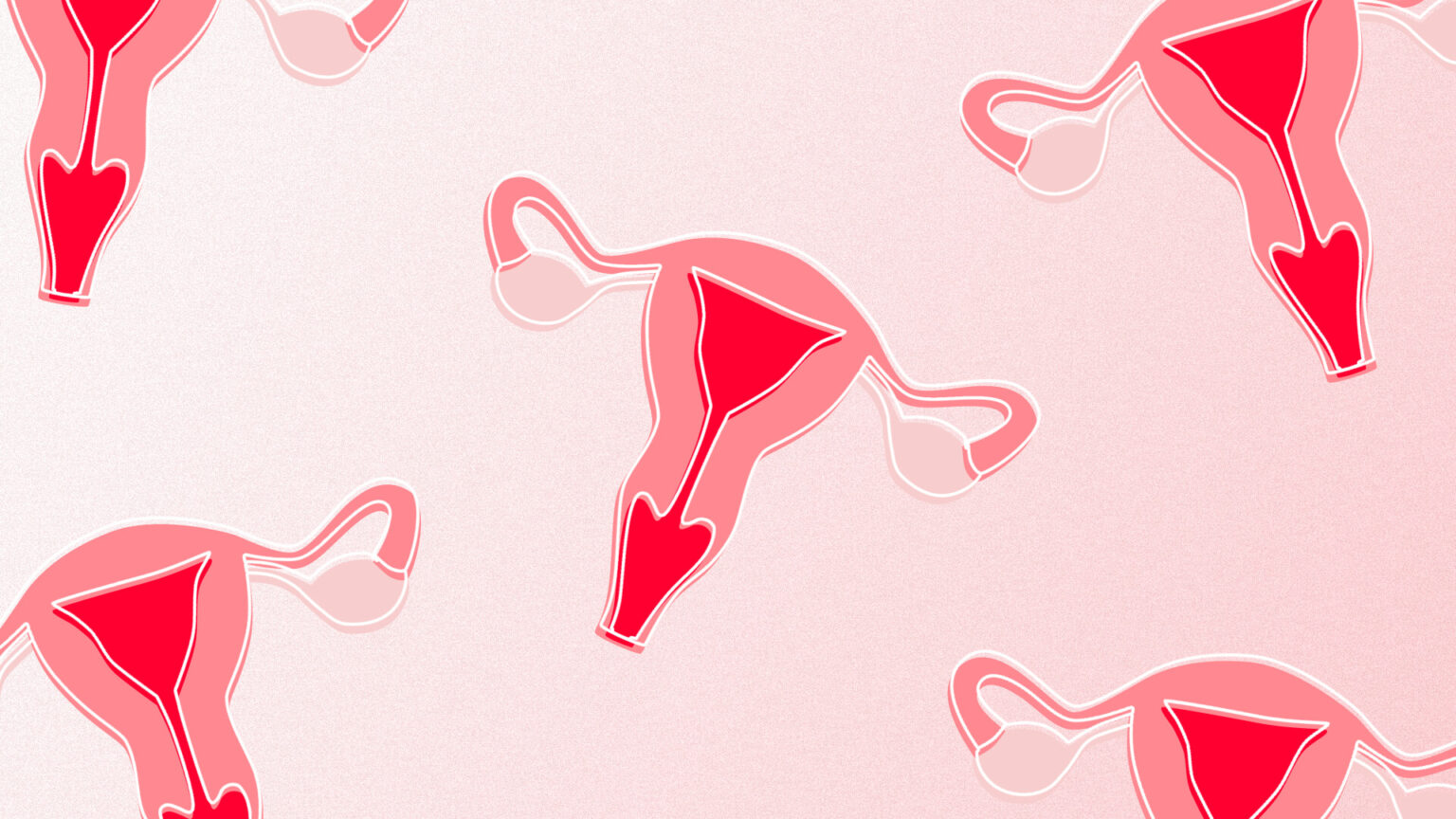I had my first period at 11 and immediately felt like my body was failing me. In one night, I went by “I can’t wait to have them, I will become great » to “ I am in so much pain, and it will be every month for years, how awful ».
Unfortunately for me, right from the start I had very painful, very heavy periods, the kind where you cry in the shower as it flows. And she has been for 26 years. Having pain every month, being exhausted and having to grit my teeth at school or at work… The contraceptives I’ve tried haven’t changed much, and only taking painkillers has allowed me to be functional. Added to this were violent contractions at random points in my cycle and discomfort during some sexual intercourse.
You should know that my mother suffered from the same thing and that her uterus was not removed until she was in her fifties when she started having bleeding periods requiring injection of iron regularly for rifle anemia.
I resigned myself to this fate, cursing my femininity in passing, until the day a few months ago when I saw a tweet from a young feminist talking about her hysterectomy. At this moment I realize ita surgeon has agreed to what seems impossible to me: to remove her uterus to a childless and young person, while just getting tubal tied is already an obstacle course in our country.
Why I chose hysterectomy
I have long thought about having my tubes tied, but I rarely have sex with people who have penises, the risk of me getting pregnant remains low and therefore I have never undertaken the procedure. However, Killing two birds with one stone and removing my uterus would be wonderful. I never even considered it possible.
I contact the person in private message to find out more, and I start searching: find a surgeon who will accept my request. I’m elated that maybe I could enjoy the years ahead without periods ruining my life.
As I am under 40 and have no children, the task seems difficult. But now I know it’s possible and I scroll through lists of surgeons on the internet (you know, the ones we pass under the coat to get sterilized without being infantilized or considered as incubators on legs who dare to rebel). I can’t find anything in my (still large) city, but a name pops up an hour away. I fix an appointment and prepare my plea.

I was diagnosed with adenomyosis, a form of endometriosis
On the day of the appointment, I was pleasantly surprised: the surgeon was attentive and respectful. He explains to me that he removes the uterus only if there is a medical reason for doing so (he sterilizes whoever he wants, and this is already a miracle), but given what I tell him about my pain, it is possible that I meet this criterion.
He orders me a series of tests detect endometriosis (resigned to my fate, I had never taken the step before), offers me alternatives if it turns out that I have nothing visible and signs the letter activating the reflection period (four months).
I pass the tests and the diagnosis falls: visible signs of adenomyosis (a variant of endometriosis confined to the uterus). I’m relieved – it means I can be operated on, but mostly because I haven’t fantasized all these years and that I really have a sick uterus. Because it’s so common, as a woman, to have her symptoms minimized.
At the next appointment with the surgeon, given the evidence and my determination, we agree remove the uterus and fallopian tubes, but leave me the ovaries to avoid premature menopause. There is a month off work to recover, so let’s choose a date that suits me. Then it’s gone ! I count the cycles before my release. He explains to me that everything will be done on an outpatient basis (entering the hospital in the morning and leaving in the evening) and that he will operate on me laparoscopically: they will make small holes in my stomach and a scar where my cervix was from the uterus.
The operation to remove my uterus
On the appointed day at the hospital, they welcome me, give me a dress and give me a last minute blood test. I patiently wait for the moment to go down to the block.
When they pick me up and take me down to the recovery room, they put me on a drip, the surgeon comes to greet me and asks me one last time if I’m still ready, then I go to the operating room where I discover the place where I’m going to be a bit horrified operated. Here we are, and it still looks like a torture chamber. Then, everything goes really fast, they settle down and put me to sleep.
I wake up several hours later, they explain it to me everything went very well and I go back to the room. It’s very good there. I have no pain but feel very weak and am not able to go out that evening. I faint at the slightest effort. Going to the toilet is torture, because the urinary catheter has irritated my urethra and I clearly feel like my intestines have been tampered with. Add to this my 4 new buttonholes on the stomach, including the bleeding navel…
I am observed at night and sleep irregularly, drink regularly and the next day I already feel much better, I have the strength to eat breakfast, get dressed and go home.
The days after my hysterectomy
Over the next few days I slept a lot and felt very strange, luckily I wasn’t alone. Clearly, the shock of the operation exhausted my body.
I only get up to eat and go to the bathroom, my belly is very swollen. On the other hand, in terms of pain, it’s very bearable to my surprise, nothing to do with the crippling pains that ruined my life. I bleed for two or three days like light periods that I can hardly feel. I take a Doliprane morning and night.
Every day gets better and I sit a little more sat and awake. A nurse spends ten days give myself an injection to prevent phlebitis. Check every time that everything is okay and that my stomach seams are clean.
A week later, I still tire quickly and have noticeable scarring but no pain and my stomach has deflated. On the other hand, I do everything very slowly because I feel that my inner disposition has changed and it is very strange. I even have sore abs when I move. I realize this is it, I will NEVER get my period or a tummy ache again.
In the two weeks that followed, I had several difficult days. I’ve started bleeding again, it hurts like a light cycle (strong) and I’m exhausted at the slightest effort. I’m depressed feeling so weak, but two days after the end of the anticoagulant injections, I stop bleeding and my shape returns. I feel like myself again, still tired, but sicker. My belly buttonholes close completely, only a slightly hard white or brown line remains.
I no longer have a uterus and I no longer have pain
A month later, during my post-op visit, my surgeon is happy and my scars are beautiful. He explains to me that it will take a year before we see their definitive appearance.
He authorizes me to resume sports, sexual intercourse and baths. Only flaw: I feel irritated and he confirms that I have a disorder of the vaginal flora, very common after the operation since I was administered betadine in the vagina. They give me an egg treat to fix it.
For the first time, I have my PMS, but no periods, and that makes me very strange. In the right direction ! I’m glad I never get my period again, I want to tell everyone. The first two weeks of work are tiring, I pick up the pace as I go.
The biggest change remains the pain: it’s gone and my daily life is much easier. No more out of nowhere cramps, stabs in the stomach and wasted days. I can fuck without worrying about getting pregnant, and I’ll never have to panic if the condom breaks again !
Added to this is a small personal pleasure: now I can answer “ I’m barren, I can’t have children » very seriously when people ask me why i have no children and/or. i don’t want to have it. So I can watching the rude person liquefy with discomfort (Stop people please our choice to be no children shouldn’t be a topic of conversation).
All this long sidewalk to say: they removed my uterus, and it’s one of the greatest gifts I’ve given myself. i freed myself.
To testify about Madmoizelle, write to us at:
[email protected]
We can’t wait to read from you!
More articles about
endometriosis
-
Accused of gynecological violence, Emile Daraï was indicted
-
Endometriosis: Survey points to alternative medicine scams
-
Alcohol makes endometriosis worse, according to one study
-
66% of women are in favor of menstrual leave… but in practice it’s not that obvious
-
Louise Bourrat, winner of Top Chef 2022, confides her endometriosis in the middle of the final
Source: Madmoizelle
Elizabeth Cabrera is an author and journalist who writes for The Fashion Vibes. With a talent for staying up-to-date on the latest news and trends, Elizabeth is dedicated to delivering informative and engaging articles that keep readers informed on the latest developments.




